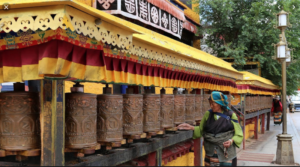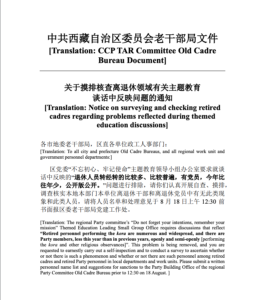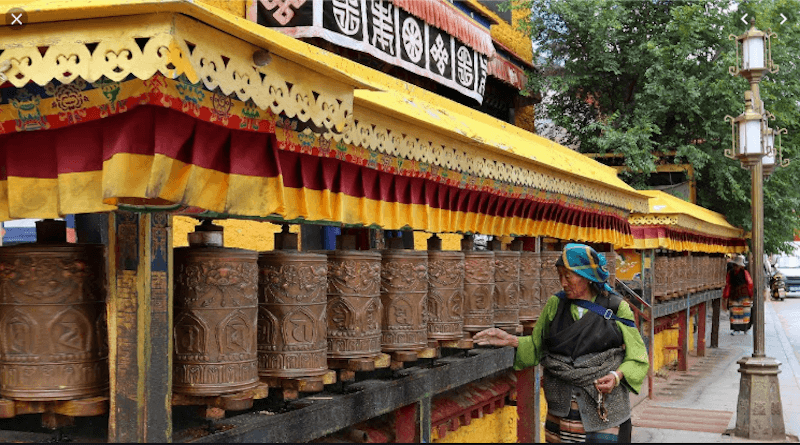Ban on religious activities further stifled in Tibet

DHARAMSALA, 12 Sept: China has banned retired Tibetan government employees from taking part in religious activities in a move to tighten religious activities in occupied Tibet, the Human Rights Watch(HRW) reported citing a Chinese Communist Party notice.
The New York-based rights group stated that the notice violates China’s commitment to religious freedom.
The further stated that the notice obtained by the rights group is undated but appears to have been issued in early August 2019.
According to the report, the notice requires all Tibet Autonomous Region (TAR) government and party offices in charge of retired government employees – regardless of whether those retirees are party members – to submit a list by August 18 of any “retired personnel performing the kora,” the Tibetan practice of circumambulating a sacred site or temple while reciting prayers or mantras.
Though performing Kora accounts for a standard daily religious practice of Tibetan Buddhists, the circular noted that punishments would be imposed on those named.
It demanded the relevant offices to “submit a written personnel name list and suggestions for sanctions” to impose on retired government workers found doing kora by 12:30 p.m. (local time) on 18 August.
 “Chinese government authorities are relentless in their quest to control all aspects of Tibetans’ religious practices,” the report quoted Sophie Richardson, China director at HRW as saying.
“Chinese government authorities are relentless in their quest to control all aspects of Tibetans’ religious practices,” the report quoted Sophie Richardson, China director at HRW as saying.
“Even those who spent their lives in service to the government aren’t spared,” she was further quoted as saying.
The notice was reportedly issued by the department under the TAR Party Committee charged with overseeing retired government employees and it has instructed the relevant offices “to earnestly carry out a self-inspection, and to conduct a survey to ascertain whether there is such a phenomenon” of retirees performing circumambulations and whether there is “such personnel among retired cadres and retired Party personnel in local departments and work units.”
The notice states that “retired personnel performing kora are numerous and widespread,” and adds that even some party members are still “openly and semi-openly” involved.
The report noted that the so-called TAR authorities in occupied Tibet set up checkpoints in 2008 at the entrance to the major circumambulation sites in the Tibetan capital, Lhasa to identify Tibetans who perform circumambulations there.
At least two current schoolteachers, who are considered government employees let off after were issued oral warnings by their superiors after going through these checkpoints, irrespective of whether their purpose had been religious, the report added.
The rights group argued in the report that though Communist Party members throughout China are banned by party regulations from engaging in religious worship or activities, there is no basis for the party to impose penalties on people, including government workers, who are not party members. Most government employees in the TAR are not party members it noted.
The U.S. Commission on International Religious Freedom (USCIRF) listed China as the world’s worst persecutor of religious faiths in its 2019 annual report released in may earlier this year.
“Religious freedom only exists in name but not in reality in China. China has sinicized and securitized religions for a political agenda. The worst cases are in Tibet and the Xinjiang Uighur Autonomous Region,” said Dr Tenzin Dorjee, USCIRF Chair.





